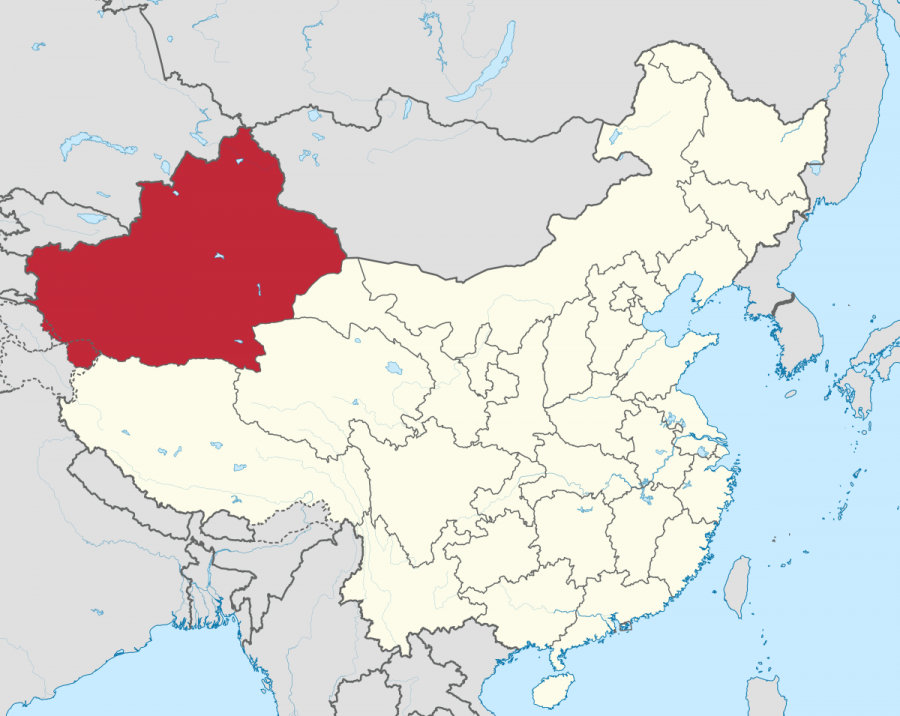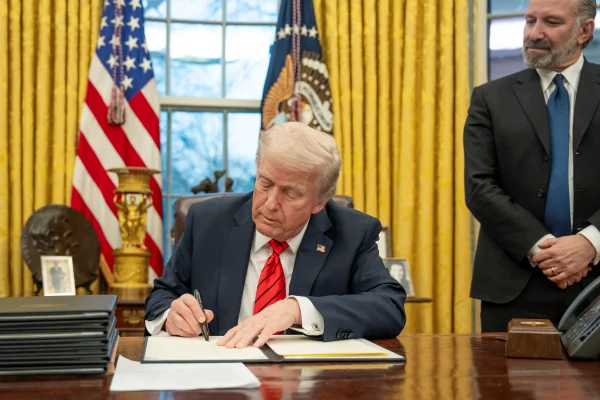Humanitarian Crisis in China Continues
Millions of Muslims in northwestern China are being subjected to mass surveillance, internment, and torture by the Chinese government.
In its northwest corner, Xinjiang, officially the Xinjiang Uyghur Autonomous Region, is China’s largest subdivision. It is home to an ethnic population of Muslims known as the Uyghur (or Uighur), and the region has belonged to China in some form for well over 300 years. Since 2017, members of this population have faced increasingly invasive surveillance, mass internment, and worsening violence, CNN reports.
A Human Rights Watch report from 2018 found evidence that authorities were using, “high-tech mass surveillance such as big data analysis, artificial intelligence, and the collection of DNA and voice biometrics to identify, profile, and track everyone in Xinjiang.”
The Willistonian spoke with Hal Stuart, a senior from Hong Kong, about the situation.
“The Xinjiang area, up until 10 or 20 years ago, wasn’t very populated,” he explained. “During World War Two it was also a separatist region; that’s why [the government] wants to keep it [under control].”
“There’s [also] this new ‘One Belt One Road’ Initiative, a series of infrastructure and resource extraction projects in central Asia [designed] to foster economic reliance on China and to create more links to Europe and Africa,” he continued. “Given Xinjiang’s geographic location, it’s pretty essential in that strategy. Powerlines, gas pipelines, trains; it all goes through there.”
The reason Beijing feels it’s losing control over Xinjiang is the Uyghur’s ideological differences and separatist history.
According to CNN, Han Chinese, the country’s ethnic majority, accounted for just six percent of Xinjiang’s total population of 4.87 million in 1953, while Uyghur Muslims made up 75%. By the year 2000, the Han Chinese population had grown to 40%, while the population of Uyghurs had fallen to 45% of the total population of 18.46 million. As the numbers of Han Chinese grew in Xinjiang, so did anti-Uyghur sentiment.
According to Vox, Chinese authorities have begun restricting Uyghur religious and cultural practices as part of a, “de-extremification effort.” This includes restrictions on giving newborns certain Muslim names, bans of long beards and veils, and educational and media censoring.
The BBC reported that the UN Human Rights Committee has found credible reports that nearly one million Uyghur people are being interned in “re-education camps.”
“They are transformation centers, and they really are aimed at completely altering Uyghur culture and identity. It’s kind of a surreal practice, I would say, that is definitely unprecedented in the 21st century,” Sean Roberts, Director of the International Development Studies Program at George Washington University, told CNN.
The reports coming out of these camps are tales of torture and forced indoctrination. One former prisoner, Kairat Samharan, reported to CNN being forced to stand for hours on end chanting, “Long live Xi Jinping!” Xi is China’s president and the leader of the nation’s communist party. Others sources claim that some have been forced to eat pork and break other Muslim traditions.
Furthermore, since 2000, there have been disturbing allegations that China harvests the organs of executed criminals and political prisoners for future transplant purposes. Many of these prisoners are Uyghurs, Tibetans, Christians, and members of a banned Taoist sect known as Falun Gong.
As more and more members of these sects were imprisoned in the early 2000s, the frequency of organ transplants rose at a rate not attributable to technological advancement. This caused suspicion from the international community and eventually, in 2018, a committee known as the China Tribunal formed to investigate.
The group recently stated, “The Tribunal’s members are certain – unanimously, and sure beyond reasonable doubt – that in China forced organ harvesting from prisoners of conscience has been practiced for a substantial period of time involving a very substantial number of victims.”
These findings sound nothing if not dystopian.
One Uyghur man interviewed by The Guardian believes, “This is a trial for the Muslim world right now. If you look at what’s happening in Syria, or in other places, the Muslim world as a whole is undergoing a test. But Allah knows everything that’s happening. We just have to get through this.”
Hollis is new post-grad to Williston this year, she has really enjoyed her transition into the Williston community. Hollis loved how she can learn about...












